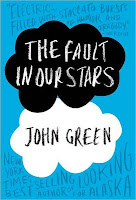 |
| Top Ten Tuesday is hosted by The Broke and The Bookish. |
In no particular order:
1. Dolores Umbridge, Harry Potter and the Order of the Phoenix. There are villains you love to hate, and then there are villains so unpleasant that they make the book in which they feature less enjoyable to read. The Umbridge Woman, as she is often called, is the latter. I always feel a sense of relief as I come towards the end of the fifth volume in an otherwise fantastically enjoyable series.
2. Angel Clare, Tess of the D'Urbervilles. Don't let his name fool you; Angel Clare is a nasty piece of work indeed, causing more hatred in my heart than the actual villain of the piece. Minutes after confessing and being forgiven for his pre-marital indiscretions, Angel abandons his bride for not being the pure maiden he believed her to be - never mind that this was probably not through her choice! Such audacious hypocrisy makes me wish Tess had dealt him the same fate she did Alec D'urberville.
3. Mary Lou Trelawney, The Chalet School series. Mary Lou starts out all right, a spirited, gobby little girl, but by the age of fifteen or so, from the way others talked about her, you'd think that she excreted rainbows! In book after book, a new girl with Issues comes to the school, and the task falls to Mary Lou to solve everything. She talks to the staff the same way she speaks to her classmates, but "it's not cheek, it's just Mary Lou." And yet with every honour or award, she is always surprised. "What? Me? No, surely not!" In one notable book, this happens twice in as many chapters. Sickening.
4. Cersei Lannister, A Song of Ice and Fire - particularly in A Feast For Crows. About as unlike Mary Lou as you can get, Cersei schemes and manipulates her way into power over the seven kingdoms of Westeros - but when she gets onto the throne in all but name, she is utterly clueless. This is understandable: being a woman in a highly sexist society, she was never expected to get into power, and therefore never trained for the role. Instead she spends all her time in her obsession to bring about the destruction of somebody she has got into her head is a danger to her. It is clear that she will bring about her own downfall in her desperation to prevent it.
5. Mr Brocklehurst, Jane Eyre. There are a lot of characters in this book that I would like to punch, but the cruel schoolmaster at Lowood heads the list, singling out children for punishment for imagined sins, such as having red, curly hair.
6. Thorin Oakenshield, The Hobbit. For the most part of the book, Thorin is a surly but respectable exiled Dwarven King. But when the gold-fever strikes him, he turns into a callous, avaricious jerk. He redeems himself, in the end, but while he is under the dragonish influence of the gold, he needs a stern talking-to with violence. It'll be interesting to see how the film copes with the most un-heroic traits of this majestic figure.
7. Aunt Elizabeth, Emily of New Moon. Always stern and with no understanding of raising children, Aunt Elizabeth raises Emily out of duty rather than love, and it is a rather austere childhood. But what pushes Aunt Elizabeth onto this list is her utter disapproval of Emily's writing, actually forbidding her to write stories for a number of years. Can any writer imagine something worse?
8. Aunt Norris, Mansfield Park. (What is it about maiden or widowed aunts in classic fiction?) Aunt Norris gives Fanny Price no illusions about her role in the Bertram family: she is a charity case, and the lowest of the low. As if shy, rather insipid Fanny needed any more lessons in humility!
9. On a similar note, Miss Minchin in A Little Princess. A pre-teen schoolgirl in her care becomes an orphan on her birthday, and her only thought is, "Who's going to pay the bills?" The way she treats young Sara Crewe is an absolute disgrace, using a girl who had been trusted into her care as the lowest servant, without the pay, food or decent lodgings that the regular staff would have been entitled to, forcing her to work on an empty stomach and sleep in a drafty attic. At least this one got her comeuppance in the end!
10. Romeo Montague, Romeo and Juliet. I can't be havin' with any of these drippy love-at-first-sight so-called love interests and it's hard work picking out just one, but we might as well go to the original. I love Shakespeare's plays, especially the tragedies, but Romeo and Juliet is the exception. When we first meet Romeo, he's moping about the love of his life, Rosaline, as if his life will never be complete without her. Then he meets Juliet, and BOOM, he's found another new love of his life. We all know how well that goes. I'd be curious to see how things might have turned out for them had they, y'know, not killed themselves. The greatest romance of all time - or two empty-headed teenagers whose brains have been replaced with hormones?








